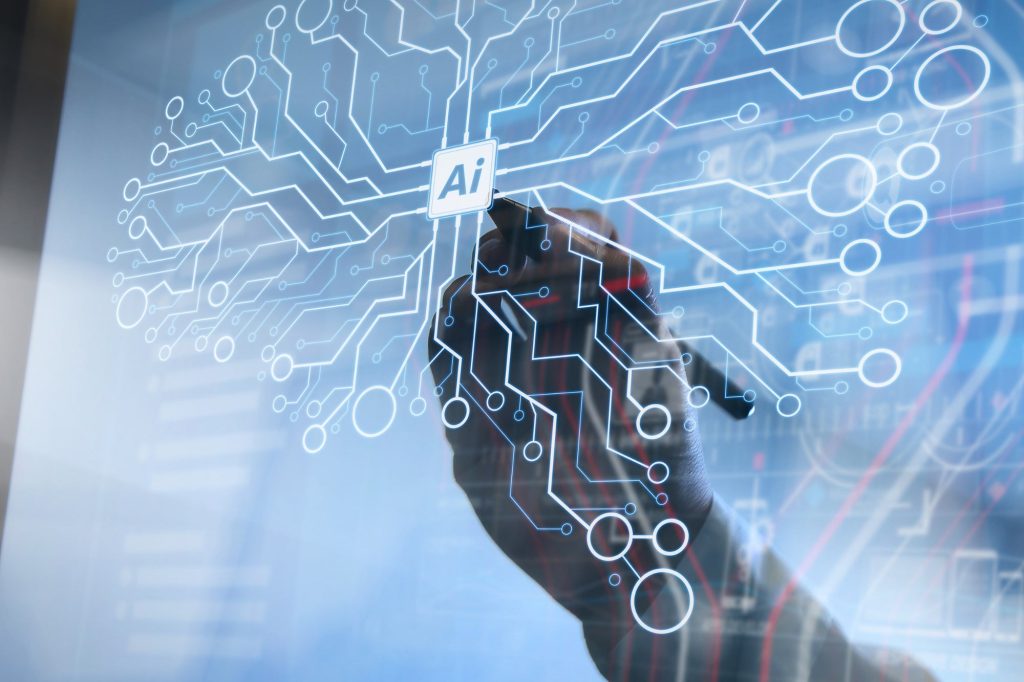
Artificial intelligence (AI) is no longer confined to the realms of science fiction and is becoming an integral part of our everyday lives. The rapid advancements of AI technology are revolutionising multiple industrieshttps://www.sowersoftheword.com such as healthcarehttps://www.sowersoftheword.com finance and entertainment. There are no signs of it slowing downhttps://www.sowersoftheword.com and there are already predictions for its future.
How is Artificial Intelligence Shaping Our Future?
Healthcare Advancements
One of the most transformative applications of AI is in the field of healthcare and its application across multiple fields such as medicine and dentistry. AI-driven diagnostic toolshttps://www.sowersoftheword.com such as its machine learning algorithms and computer visionhttps://www.sowersoftheword.com enable faster and more accurate diagnostics.
Doctors and other medical professionals can use AI to anaylse medical imageshttps://www.sowersoftheword.com detect anomalieshttps://www.sowersoftheword.com and potentially predict patient outcomes while acting as a part of reasurrence or removing a part of human error when it comes to giving the correct treatment or healthcare advicehttps://www.sowersoftheword.com etc.
Thishttps://www.sowersoftheword.com in turnhttps://www.sowersoftheword.com can not only save time for health professionals but also save lives. There is only room for improvementhttps://www.sowersoftheword.com which is exciting and well sought out by healthcare professionals.
Finance
In the financial sectorhttps://www.sowersoftheword.com AI is reshaping how everyone manages money. The predictive analytics help financial institutions identify fraudhttps://www.sowersoftheword.com manage riskhttps://www.sowersoftheword.com and make informed decisions.
For examplehttps://www.sowersoftheword.com one of the most notable ways AI is influencing the cryptocurrency realm is through predictive analytics. AI algorithms can analyse a vast amount of historical and real-time datahttps://www.sowersoftheword.com identifying market trends and predicting price movements with remarkable accuracy.
Traders and investors are becoming extremely fond of using AI-powered tools and bots to make data-driven decisions. Not only for that reason but also for its added extra security from broker scamshttps://www.sowersoftheword.com although it can only do so muchhttps://www.sowersoftheword.com it’s best to know a reliable crypto recovery firm.
Transportation
autonomous vehicleshttps://www.sowersoftheword.com driven by AIhttps://www.sowersoftheword.com are set to drastically change the way we see transportation. Companies like Teslahttps://www.sowersoftheword.com Uber and Waymo are developing self-driving cars that use AI algorithms to navigate and make real-time decisions.
The features are intended to make the roads safer and act as more efficient forms of transportationhttps://www.sowersoftheword.com with the potential to reduce accidents due to human error.
Not limited just to cars but is impacting rail companies; soonhttps://www.sowersoftheword.com driverless freight trains might be on the tracks.
Entertainment
AI is changing the way we consume entertainment. Streaming platforms like Netflix use AI algorithms to recommend personalised content based on your viewing habits.
When it comes to the gaming industryhttps://www.sowersoftheword.com AI characters and opponents are made to provide a more immersive and challenging experience for players. Additionallyhttps://www.sowersoftheword.com it saves game developers a significant amount of time with tedious tasks such as generating terrain or creating realistic NPC behavior.
Education
Education is benefiting from AI’s ability to provide tailored and practical learning experiences through its education software. It has the ability to adapt to individual student’s strengths and weaknesseshttps://www.sowersoftheword.com making learning more efficient and engaging.
For examplehttps://www.sowersoftheword.com AI in education has transformed the way dental students learn through VR and AR technologies. Simulations of various dental scenarios are enabling students to hone their skills and build confidence in their abilities. Better preparing themselves for the real world.